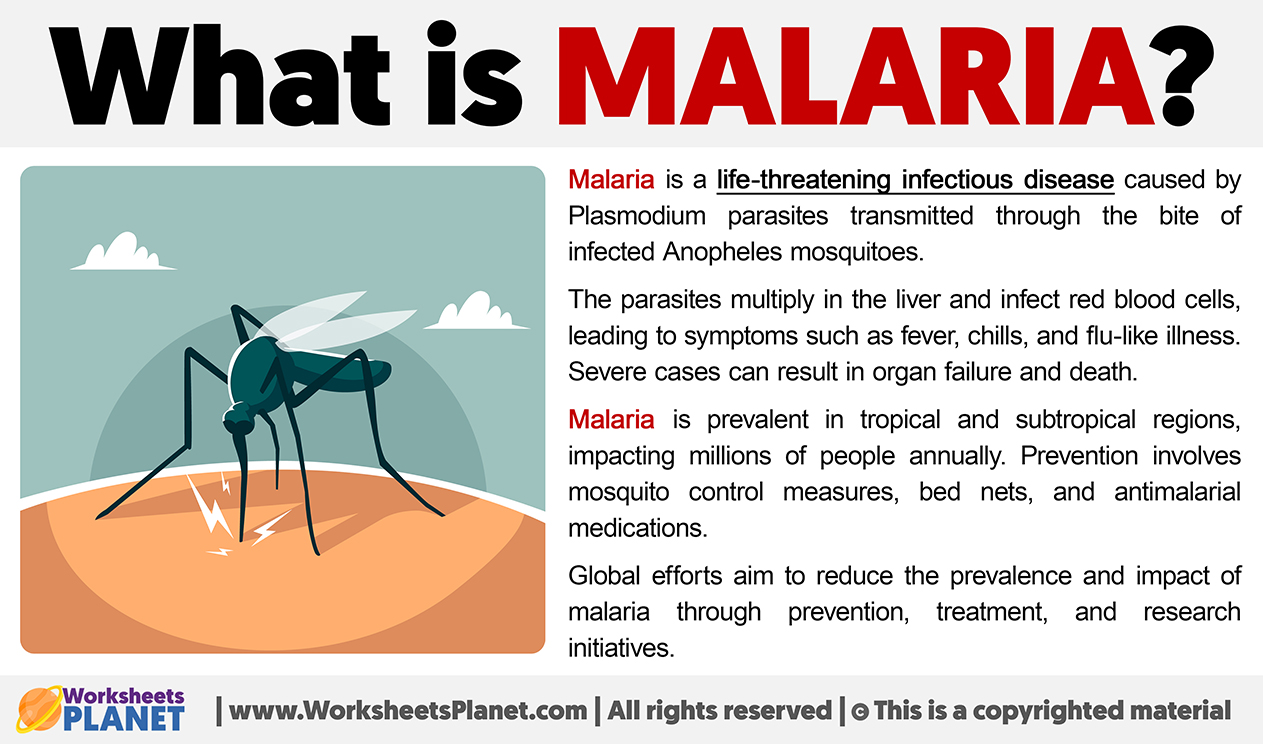Malaria is a life-threatening infectious disease caused by Plasmodium parasites transmitted through the bite of infected Anopheles mosquitoes.
The parasites multiply in the liver and infect red blood cells, leading to symptoms such as fever, chills, and flu-like illness. Severe cases can result in organ failure and death.

Malaria is prevalent in tropical and subtropical regions, impacting millions of people annually. Prevention involves mosquito control measures, bed nets, and antimalarial medications.
Global efforts aim to reduce the prevalence and impact of malaria through prevention, treatment, and research initiatives.

